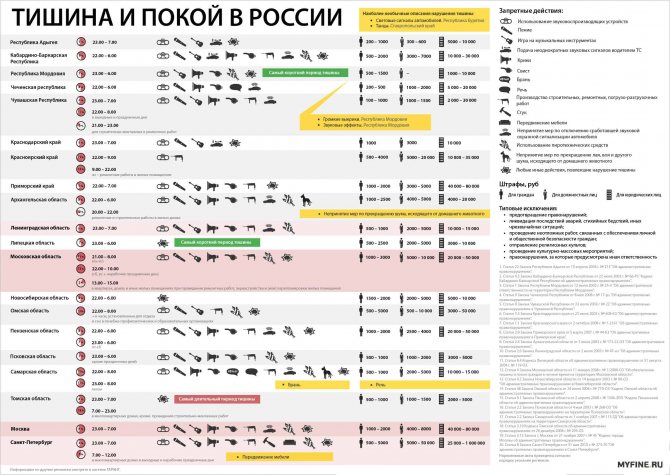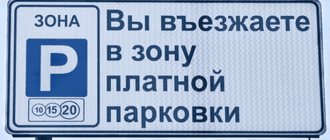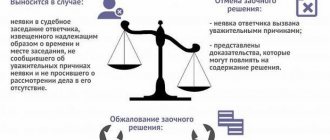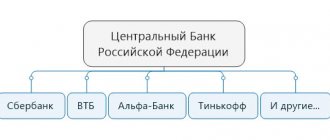Today, in multi-storey buildings, the quality of rest of residents may decrease, since not every neighbor is able to respect the rest of others, organizing noisy fun or playing loud music at prohibited times. To prevent such situations, the State Duma voted the Law “On Silence”, duplicated by most regions.
How to take up arms against people who ignore the observance of silence, what noise limits are established by the legislative standards of the Russian Federation, what time of day is provided for rest, and also what sanctions are approved for non-compliance with the quiet regime will be discussed in this article.
Silence law from January 1, 2021: official text
The Russian government first thought about introducing such a bill a couple of decades ago. As a result, at the end of the second millennium, the first version of the document was adopted. Over the course of a long time, it was constantly supplemented and changed, and amendments were made both at the federal and regional levels. Most of the improvements were related to the maximum noise level and the time that allows you to forget about silence. A kind of impetus for the creation of this draft law was the regular complaints of owners and residents of apartment buildings. The main problem was the noise coming from the neighbors and not allowing for proper rest. It took a lot of time to consider each individual claim, as a result of which it was decided to limit the level of permissible noise by introducing a corresponding bill. In accordance with it, the noise level can be as follows:
- Daytime – 40 dB;
- Night – 30 dB.
During the daytime, it is allowed to exceed the permissible value, but not more than 15 dB. As for the sources of noise, this included the operation of electrical appliances, noise generated by repairs and construction, barking dogs, people screaming and other sounds.
How to deal with noise
If your neighbors are constantly making noise at night, you can complain about them to the police, prosecutor or court. If residents make noise during the day, you must first measure the noise level, and if it exceeds the norm, then you should contact the appropriate authorities with a complaint. Let us note that if the noise appeared accidentally or for reasons for which the residents of the house are not responsible, then in this case they cannot be held administratively liable.
As for dealing with noise, it is not at all necessary to argue with your neighbors, much less use force. Also, the wedge by wedge option is not suitable in this case. You must first talk to the neighbors who are disturbing the silence, explain to them that they are wrong. It is enough to explain in detail what awaits them for the violation, and also make it clear that you are not going to put up with this and are ready to write a complaint. It is likely that they will not want to get involved in the conflict and will stop making noise. If they flatly refuse to comply, then you can call the police and draw up a report.
As practice shows, it is rarely possible to come to an agreement peacefully with violators, so law enforcement agencies come to the rescue. It is not necessary to call the police at night and start proceedings. You can simply write a statement in free form. It will be effective if this statement is signed by other neighbors who share your opinion. In such a situation, you can be confident of success. Let us remind you once again that at night noise above 40 dB is unacceptable. This is approximately the noise a running personal computer makes. Of course, it is only audible within the room in which it is located. Thus, it is obvious that there should not be any extraneous loud sounds at night.
Federal Law on maintaining silence in an apartment building in 2021: official text
For the first time, State Duma deputies were faced with the need to adopt Federal Law 52 in 1999. The new bill has determined the time when it is forbidden to make noise in apartments. The official text has been changed several times, establishing new periods of silence. Today, the law requires residents of apartment buildings to reduce the volume level indoors to 30 dB between 21.00 and 8.00 on weekdays. Silence on weekends and holidays should be ensured from 22.00 to 10.00. Parliamentarians made an exception for New Year's Eve, when noise is officially allowed.
Peace and quiet in Russia
For example, in St. Petersburg there was a heated discussion on the bill “on the stomping of cats”; as a result, the most odious formulations of noise, such as howling dogs and loud movement of cats around the apartment, were excluded from the adopted law, but a ban on moving furniture remained.
However, a ban on howling and barking dogs, as well as other noise from domestic animals, exists in the regional legislation of the Samara and Arkhangelsk regions. And the laws of the constituent entities of the Russian Federation on administrative offenses adopted in accordance with it.
Thus, the rules of law containing a ban on committing actions that disturb the peace of citizens at night, as well as the rules of responsibility for such actions, are adopted by the authorities of your region.
“Law on silence” - what kind of law is it?
There is no federal “silence law.” Moreover, there is no law with this name.
Silence laws are regional laws that contain legal norms prohibiting disturbing the peace and quiet of citizens at night under threat of punishment - a warning or a fine.
Each region of Russia has its own rules about prohibiting noise at night.
The procedure for bringing to justice for disturbing the peace of citizens at night is regulated by the norms of the Code of Administrative Offenses of the Russian Federation.
However, as stated above, the ban itself, as well as the rules on liability, must be adopted by regional authorities, which determine what is “night time”, what is the scope of liability (amount of fine), which objects fall under the protection of the law.
On the Internet you can easily find regional laws providing for liability for disturbing the peace of citizens at night in your region.
What is "night time"?
Each region defines its own night time.
For example, according to the Moscow law “On maintaining the peace of citizens and silence in Moscow” No. 42 dated July 12, 2012, night time is the period from 11 p.m. to 7 a.m.
.
In accordance with Part 1 of Art. 10.1 of the Law of the Oryol Region N 1490-OZ “On liability for administrative offenses” provides for liability for violating the peace and tranquility of citizens at night - from 23 to 7 o’clock
..
According to the Omsk Region Code of Administrative Offenses,” night time is the period from 10 p.m. to 8 a.m.
.
According to the Law of the Republic of Tatarstan dated January 12, 2010 N 3-ZRT “On maintaining the peace of citizens and silence at night”, night time means the period from 22.00 to 6.00
hours on weekdays, and on weekends and non-working holidays -
from 22.00 to 9.00
.
In accordance with Article 2 of the Law of St. Petersburg dated May 31, 2010 N 273-70 “On Administrative Offenses in St. Petersburg,” night time means the period from 10 p.m. to 7 a.m.
.
Administrative liability is also provided for actions that disturb the peace and quiet of citizens in apartment buildings on weekends and non-working national holidays from 7.00 to 12.00
, including repair, construction, loading and unloading and other work.
What noise can be classified as actions that disturb the peace and quiet of citizens at night?
We are talking about any noise that obviously prevents neighbors from sleeping peacefully. In our opinion, it is not necessary for the legislator to list in the law all “types of noise” or actions performed that are considered illegal, but some acts still contain such a list.
For example, the above-mentioned law of the city of Moscow “On maintaining the peace of citizens and silence in the city of Moscow” contains the following list (however, this list is not exhaustive):
“Actions that disturb the peace and quiet of citizens at night in protected areas and in protected premises in the city of Moscow include:
a) the use of televisions, radios, tape recorders and other sound-reproducing devices, as well as sound amplification devices, including those installed on vehicles, small retail trade facilities - kiosks, pavilions, trays, resulting in disruption of citizens' peace and quiet at night; b) playing musical instruments, shouting, whistling, singing, as well as other actions accompanied by sounds, resulting in disruption of citizens’ peace and quiet at night; c) the use of sound signals from car security alarms, resulting in disruption of citizens’ peace and quiet at night; d) the use of pyrotechnics, resulting in disruption of citizens' peace and quiet at night; e) carrying out repair, construction, unloading and loading work, resulting in disruption of citizens' peace and quiet at night; e) other actions..."
What is the fine for violating the peace and quiet of citizens?
Regional laws, as a punishment for violating the peace and quiet of citizens, may provide not only a fine, but also other punishments listed in the Code of Administrative Offenses of the Russian Federation. But, as a rule, the sanction for night noise involves only a fine and a warning.
So, for example, according to Article 3.13 of the Moscow Law of November 21, 2007 N 45 “Moscow City Code on Administrative Offenses”, for committing actions that disturb the peace and quiet of citizens from 11 pm to 7 am, the following types of punishments are provided:
Warning;
Imposition of an administrative fine:
In the Omsk region, the sanction for violating silence is somewhat different from the Moscow one in terms of the size of the fine.
Thus, Article 48 of the Law of the Omsk Region dated July 24, 2006 N 770-OZ “Code of the Omsk Region on Administrative Offenses” for committing actions that disturb the peace and quiet of citizens (using sound-reproducing devices at high volumes, loudly singing and playing musical instruments, organizing and carrying out construction, repair, loading and unloading and other work) provides for penalties in the form of:
Warnings;
But paragraph 2 of Article 48 of the law provides for liability for actions that disturb the peace and quiet of citizens through the use of pyrotechnic products, with the exception of non-working holidays in the form of:
Warnings;
Administrative fines:
Time for repair work
Loud construction or finishing work is prohibited between 19.00 and 9.00 on weekdays. True, some entities shifted the time frame and allowed repairs to be made until 10 p.m. At the same time, the removal of construction waste in most regions is allowed from 8.00 to 22.00. In addition, there is a restriction on continuous noise from repairs. It cannot be carried out longer than 6 hours in a row. After this period, you should take a break. In addition, there is a “quiet hour” during lunch, when making noise is generally prohibited.
Gathering evidence about neighbor noise
To hold neighbors accountable, it is necessary to collect evidence of violations on their part. By the time the police arrive, they can stop the noise and the authorities will have no reason to impose punishment. Before calling the law, it is recommended that you take a number of steps.
- Record the noise coming from your audio device. This should be done not only from your apartment, but also from the landing. The noise can be recorded for several nights.
- Record a conversation with problematic neighbors. They can confirm their violations and provoke further conflict.
- Use a camera if your neighbors have a stash house. It is not necessary to go inside: many traces of antisocial behavior are visible from the outside.
- Install a video surveillance system, coordinating its installation with the management company. The cameras will allow you to identify all persons visiting the problem apartment.
See the video below for solutions to the problem when neighbors disturb your sleep:
Fines for breaking silence
According to the latest amendments to the law, people who exceed the permissible volume at a certain time will be punished financially. Monetary fines will have to be paid not only by ordinary residents, but also by organizations that do not monitor the noise level in the building where they are located. For the first violation, law enforcement agencies Usually they are limited to a warning, but if repeated, they issue a fine. Today the following sanctions have been established:
- primary recovery from 1 to 3 thousand rubles. (determined based on complaints from neighbors and excessive volume levels);
- the second violation will cost 4 thousand rubles;
- for the third time, law enforcement agencies will issue a fine of 5 thousand rubles.
These amounts apply to residents of apartment buildings. But legal entities cannot get by with such small fines. They will have to pay several tens of thousands of rubles for breaking the silence. The maximum amount of recovery is 150 thousand rubles.
Law of the Moscow Region of March 7, 2014 No. 16
the use of sound-reproducing devices and sound amplification devices, including those installed on vehicles, at (in) retail, public catering, and leisure facilities, resulting in a violation of the peace and quiet of citizens; 2) shouting, whistling, singing, playing musical instruments, resulting in a violation of the peace and quiet of citizens; 3) the use of pyrotechnics, resulting in a violation of the peace and quiet of citizens; 4) carrying out repairs, reconstruction and (or) redevelopment of residential premises, resulting in a violation of the peace and quiet of citizens; 5) carrying out excavation, repair, construction, unloading and other types of work using mechanical means and technical devices, with the exception of the work provided for in paragraph 4 of this part, which entailed a violation of the peace and quiet of citizens; 6) other actions that entailed a violation of the peace and quiet of citizens.
A barking dog at the neighbors: where to apply according to the law
When a well-deserved vacation turns into a real hell because of the barking of a neighbor’s dog, and an attempt to peacefully resolve the problem by simply talking with the dog’s owners does not bring the desired result, it’s time to file a police report. The district police officer is obliged to talk to the violators, convincing them to deal with the problem. Unfortunately, explanatory conversations are often ineffective. In this case, observe your neighbors; perhaps the animal’s restless behavior is due to cruel treatment. To solve the problem, contact an organization competent to deal with the problems of keeping pets. If cruel treatment is confirmed, the animal may simply be taken away. Among other things, owners will receive assistance with training, teaching the dog to obey its owners.
Options for solving the problem
There are several ways to deal with the difficulties that have arisen:
By getting to know your neighbors and informing them about the inconvenience caused at night.
This method is very effective, since residents of an apartment located nearby may not be aware of poor insulation of walls and ceilings. It often turns out that the source of the problem is parties thrown by children in the absence of parents. Having learned about the neighbors’ discomfort, the apartment owners will stop causing inconvenience.
Calling law enforcement.
Calling the police about noise from neighbors is advisable if the conversation did not help solve the problem or the tenant who reported them encountered an inappropriately aggressive reaction. It is not recommended to take the conflict to a new level, so pacifying a loud neighbor should be entrusted to the police. Most people are law-abiding, so they will follow the instructions of a government official.
By drawing up a statement and submitting it to the district police officer.
This method is effective in cases where night police visits do not force residents to stop making noise. The inspector is obliged to respond to written requests from citizens and will regularly visit the problem apartment, registering it. Constant visits from the local police officer can influence the neighbors, and they will stop making noise.
Filing a lawsuit
This method is appropriate when the source of the problem is a den. Its inhabitants usually do not pay attention to the police. The solution is to apply Art. 35 Housing Code of the Russian Federation. Malicious violators of neighbors' rights to silence can be evicted if the court upholds the claim. This method is effective against persons living in housing under a social tenancy agreement or tenants. If we are talking about the owner, then it will not be possible to evict him.
The effectiveness of the measures taken will increase if residents of several apartments write statements to the district police officer. The more requests there are, the less likely it is that they will be ignored. When considering a case in court, the claims of several neighbors will be combined within one case and a larger amount of necessary evidence will be collected.
If you or your neighbors have started noisy renovations, you should take into account some general principles of legislative regulation of this issue - for example, it is prohibited to carry out renovations on public holidays; You should definitely take a break (in Moscow, “quiet hour” lasts from 13 to 15 p.m.).
Management Company
Such a measure, if residents regularly disturb the peace of their neighbors, can lead to sad consequences for them - legal proceedings and forced eviction.
Rospotrebnadzor
Residents of an apartment building also have the right to write a collective complaint to Rospotrebnadzor. Employees of this body will come to the scene of the violation and conduct an examination.
How the examination is carried out:
- specialists will visit the site of the violation on those days and time periods specified in the law on silence;
- sound levels are measured using a sound level meter;
- the offender’s home is inspected - experts repeatedly take sound level meter readings, for example, while the owner is carrying out repair work;
- the obtained indicators are entered into the act.
Note!
The report drawn up by Rospotrebnadzor specialists will be indisputable proof that you are right if the conflict comes to court.
If all the proposed methods for resolving the conflict have not led to the desired result, all that remains is to write a statement of claim to the court. It is worth considering that only the presence of serious evidence will allow the violator to be held accountable. They can be:
- copies of written complaints;
- a report on detected noise drawn up by Rospotrebnadzor specialists;
- testimony of witnesses to the violation;
- a copy of the statement to the police;
- video or audio recordings confirming the time of noise occurrence during prohibited hours.
As a rule, the court imposes an administrative fine on the violator. But sometimes neighbors who are too noisy face forced eviction.
Note!
Eviction of a tenant is possible only by court decision and provided that he is not the owner of the premises.
Fine and punishment for noise after 23:00 in 2021
Persons who violate the law will have to pay a fine. In each individual region, the amount of the penalty is set individually. For example:
- Moscow – 1-2 thousand rubles. for citizens, 40-80 thousand rubles. for companies;
- St. Petersburg – 0.5-5 thousand rubles. for individuals, up to 200 thousand rubles. for organizations;
- Altai Territory – 0.5-3 thousand rubles. for ordinary citizens, up to 10 thousand rubles. for legal entities.
As practice shows, tariffs set in large metropolitan areas can reach exorbitant heights, especially when it comes to companies violating the silence law from January 1, 2021. The legislation treats individuals more favorably.
What needs to be indicated in the application
If restless violators haunt you, you have the right to write a complaint to the court, prosecutor's office or the nearest police department. The written document must indicate:
- The name of the institution where you are applying.
- Your name and the name of the offender, as well as exact addresses and telephone numbers.
- Explanation of the situation that arose.
- The amount of moral damages based on the harm caused.
- Conclusions regarding exceeding noise level standards.
- Number of the report drawn up by the police.
- It would be ideal if photographs, signatures or some other form of evidence of the violation are attached.
The most desperate ones (those for whom their neighbors decide when they go to sleep) play a “Hello Neighbors” file downloaded from the Internet early in the morning (a recording of a squealing drill, a family quarrel, a repeated children’s song, or a barking dog). Call the local police officer. If his number is not available, call the police. The representative of the internal affairs department has the right not to limit itself to a preventive conversation, but to submit the compiled protocol to the court. The magistrate is authorized to sentence the brawler to a fine of 1-2 thousand.
What to do if there is noise in the yard under the windows
When the silence is disturbed by sounds coming from the yard, be it music, screams or the long squeak of an alarm, you should immediately contact the police. After arriving at the scene, law enforcement officers will draw up a protocol, recording the details of the violator. It should also be understood that the management company is also obliged to monitor order in the local area. To solve the problem, it would be useful to write a statement to its chairman.
Regarding excessive noise near the store, it is recommended to contact Rospotrebnadzor. It is likely that in this case not only the law on silence is violated, but also the ban on the sale of alcoholic beverages at night is not observed.
How to bring a violator to justice: instructions
- Study regional regulations. You need to make sure that certain actions are prohibited in your locality: whistling, shouting, moving furniture, etc.
- Take measures to record the offense. You can make audio/video recordings, identify eyewitnesses, and use instruments to determine noise levels.
- Submit an application for involvement to the authorized body, attaching the collected evidence. It will vary depending on the region, but in not a single subject of the Russian Federation will the police refuse to accept an application.
- Bring the perpetrator to justice. The victim in a case of violation of silence, as a rule, has the right to participate in the proceedings and appeal the unfair decision.
- File a civil claim for compensation for moral damages. Contacting doctors or psychologists will help confirm the damage caused.
Advice! When entering into negotiations with the offender, be sure to turn on the voice recorder on your smartphone
. It is not necessary to warn about the recording, since it is kept for yourself.
Where to complain about violators
If neighbors do not respond to requests to turn down the music volume or stop repair work, you need to act decisively. First of all, you will need to stock up on evidence. This may be an audio recording, but it is best to provide a video recording to confirm that the volume in a particular apartment has been exceeded. You will need the video when you call the local police officer, since by the time he arrives the neighbors may have stopped making noise. A law enforcement official must submit a written complaint. After the investigation, the violator will be fined. You can also contact Rospotrebnadzor, the police, and even the court. If there are witnesses and video footage confirming the violation, you have every chance to punish the neighbor who constantly harasses you with noise at night, and even recover money from him for moral damages incurred. Follow the norms established by law so as not to suddenly see a notice about upcoming trial. Not all neighbors are ready to decisively fight troublemakers, but if the volume level is constantly exceeded, the number of people willing to write a complaint will increase.
Causes of noise from a neighboring apartment
The causes of noise can be completely different:
- Loud music.
- Repair work.
- Screams.
- Whistling.
- Singing.
- Playing musical instruments.
- Loud knocking, rustling, grinding.
It is necessary to distinguish between systematic noises, which can be generated by people or equipment at any time of the day, and loud sounds at night. The legal difference between them is that systematic noise is a violation of sanitary standards, and loud noises at night are a violation of administrative legislation.
Accordingly, neighbors need to act depending on the specific situation. Questions about regular violation of silence by devices and citizens during construction and road work, as a result of the activities of public catering organizations, the functioning of public transport, etc. fall within the competence of Rospotrebnadzor.
As for sharp sounds made at night (loud music, screams, whistling, singing, the use of pyrotechnics, repairs at neighbors' houses, etc.), these are offenses that police officers have the right to record. As for the consideration of cases of administrative offenses, the powers are vested either with internal affairs officers or administrative commissions.
If the neighbors are drunk and they have a big company
If the neighbors are having a noisy feast, there are a lot of people in the apartment, or the owners are clearly under the influence of alcohol or drugs, it is best to skip the conversation stage. Since no one can be sure how neighbors or their guests will behave during this conversation. Therefore, in such cases, it is better to immediately contact the police. The maximum that can be done before this is to call your neighbors on the phone and talk, if possible.
What to do if your neighbors are constantly noisy?
If your neighbors are constantly making noise and no amount of talking helps, then comprehensive measures should be taken. At a minimum, you should have on hand the protocols from the police and the local police officer who responded to calls, which you should copy for yourself in advance. It is imperative to collect signatures from other dissatisfied residents.
After this, you should go to court, other evidence will be useful there:
- Testimony of witnesses.
- Video and audio recordings.
- Noise examinations (they can be carried out by a special organization: a private examination bureau, if an individual is making noise, such a service will be paid, or Rospotrebnadzor, if the neighbors are a cafe, a store or any other legal entity. But you can also use phone applications, they are approximately show the noise level in the room, the process itself is recorded on video).
- If the noise has caused damage to the health of the applicant, then medical certificates and receipts for medications and services should be attached.
In what cases are there exceptions to the silence law?
The rule on maintaining a quiet regime at certain times does not apply to actions that are aimed at preventing an accident or any offense, as well as the consequences of a natural disaster, emergency and other incidents in connection with which urgent public safety is required. To find out exactly the time during which noise is prohibited in your locality, you should familiarize yourself with the legislative acts of the local government that relate to the law on silence. Usually this information is located on the official website of the administration of a particular city or region.
Daytime noise
It is important to know that during the daytime, although citizens are allowed to carry out noisy work, the noise level is set at 55 dB within the normal limits. If any work exceeds this parameter, then hours and breaks for such sounds must be observed. Daytime hours are set from 7 am to 11 pm, but this does not mean that the most noisy work can be carried out at this time.
In order to understand which sounds are the noisiest, you need to compare them with each other. For example:
- the sound of a hair dryer and vacuum cleaner reaches 80 dB;
- conversation with average intonation is carried out at 60 dB;
- the hammer drill produces sound up to 140 dB;
- the hammer produces a blow with a sound of up to 120 dB;
- The sound of a car alarm reaches 120 dB.
It turns out that the strongest and most unpleasant sounds are made when renovating an apartment using a hammer and hammer. Therefore, individually permissible hours are provided for such noisy work:
- on ordinary weekdays you can start making noise from 9 am, and must finish before 19.00;
- if a given day is considered a weekend or an official holiday, then the morning start hours of work are postponed to 10 am;
- in addition, it is imperative to take a break for a quiet hour, which means 1-2 hours of lunch time, which is necessary for small children or elderly people to sleep and rest;
- the total duration of repair work cannot be longer than 3 months in a row; if they are delayed in time, then it is necessary to obtain the written consent of the neighbors.
It is important to know that this time is set by federal law. However, municipal authorities of each region have the right to independently establish night and day hours, as well as an individual regime for carrying out construction work. In addition, in some regions there is a general ban on noise on holidays or weekends. Therefore, every citizen living on the territory of Russia must know, in addition to general federal legislation, also the local laws of the subject where he lives or is currently located.
Krasnodar region
Actions that disturb the peace and quiet of citizens. Any actions that led to this are separately highlighted:
- any use of sound-reproducing devices at high volume;
- loud singing and playing musical instruments;
- giving repeated sound signals.
When you can't make noise. From 23:00 to 07:00.
What is the responsibility? If the violation occurred for the first time, the fine:
- for citizens - 1000 rubles,
- for officials - 3000 rubles,
- for legal entities - 10,000 rubles.
If the violation is repeated, it will result in a larger fine:
- for citizens - 2000 rubles,
- for officials - 5000 rubles,
- for legal entities - 50,000 rubles.
Documents regulating the silence regime. Article 3.3. Law of the Krasnodar Territory of July 23, 2003 No. 608-KZ “On Administrative Offenses” (as amended on December 18, 2019).
Each region of Russia has its own rules about prohibiting noise at night.
The procedure for bringing to justice for disturbing the peace of citizens at night is regulated by the norms of the Code of Administrative Offenses of the Russian Federation.
However, as stated above, the ban itself, as well as the rules on liability, must be adopted by regional authorities, which determine what is “night time”, what is the scope of liability (amount of fine), which objects fall under the protection of the law.
On the Internet you can easily find regional laws providing for liability for disturbing the peace of citizens at night in your region.
Legislation
According to the current federal law, night hours are conditionally defined for all regions from 23 pm to 7 am. All other time is considered as a general rule to be daytime hours. According to this time division, the loud noise ban applies at night. The noise level is determined in decibels. Thus, the current norm for the night is set at 30 dB. Exceeding this limit is a violation.

In addition, this legislation also determines the type of sounds that are prohibited and fall under the source of increased noise. These include:
- various types of pyrotechnics;
- various types of repair and construction work;
- any musical instruments;
- car and premises alarms;
- sounds from TV, stereo and other electronic equipment.
Of all the above circumstances, there are 2 exceptions when creating noise at night is allowed:
- It is possible to carry out noisy repair work if this is required to eliminate accidents in the house, which urgently need to be carried out to preserve the health of residents and their property.
- It is permissible to create noise necessary to prevent a crime.
In these two situations, residents of the house or other people can create noise that exceeds the established limits, and no punishment will be provided for this person.
Scene
Legislation regulating night hours and silence during this time period extends its effect to all public places where a person is not alone, but there are citizens around him. Such places include:
- urban transport;
- hotels;
- sanatoriums, children's camps;
- hospitals and other medical institutions;
- local areas;
- apartment buildings;
- other public organizations.
Thus, loud noises are only allowed in closed establishments that isolate the surrounding areas from them at night. The same applies to a home apartment. If the sound insulation is insufficient to block out extraneous sounds, then citizens are prohibited from making noise in the apartment above the established decibels.











